Medical Malpractice Lawyer in North Carolina
Gloria Becker will guide you through the complex law of a medical malpractice and fight for your deserved compensation.

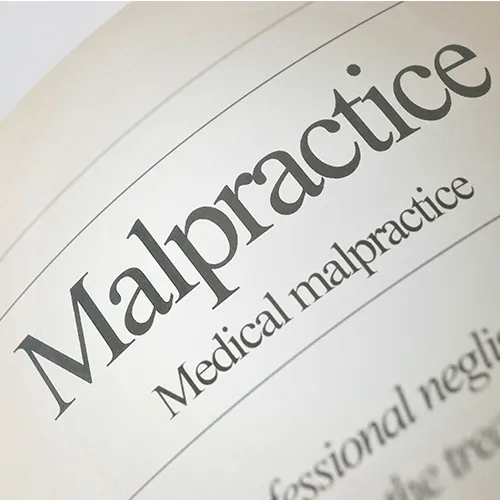
What is Medical Malpractice
Health care providers are accountable when they don’t meet the standard of care and the patient is injured. This breach of duty can happen in many ways, diagnosis, treatment or management of an illness. The standard of care is the level of care a competent medical professional would provide in the same situation.
Medical Malpractice takes many forms– from medical errors to misdiagnosis, medical malpractice occurs when the health care provider’s actions fall below the standard of care, or they fail to act as a similarly situated health care provider would have acted under similar circumstances.
Proving the doctor didn’t meet the standard of care is key in a medical malpractice case. This usually requires testimony from medical experts who can testify what the standard of care should have been in that situation. Understanding this is the first step in managing a potential medical malpractice claim.
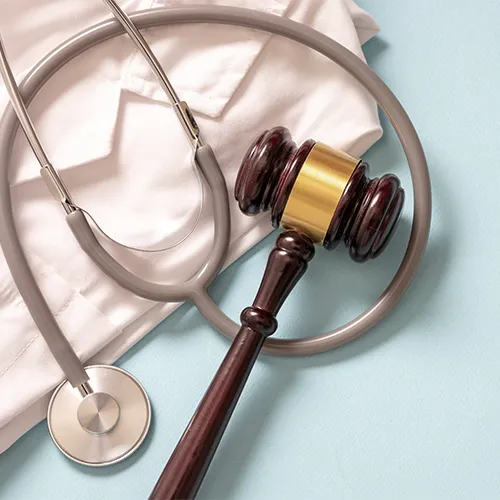
Understanding Medical Malpractice
Medical malpractice occurs when a healthcare provider, such as a doctor, nurse, or hospital, fails to meet the standard of care expected in their profession, resulting in harm or injury to a patient. This can happen in various settings, including hospitals, clinics, and private practices. Medical malpractice can take place in a variety of medical errors, including surgical mistakes, medication errors, misdiagnosis, and failure to diagnose. It’s essential to understand that medical malpractice is not just limited to doctors, but can also involve other healthcare professionals, such as nurses, dentists, and pharmacists.

Why You Need a Medical Malpractice Lawyer
Medical malpractice law is complicated, with specific facts and legal issues that require specialized knowledge. Getting compensated for a medical malpractice claim involves proving fault and damages, a difficult task for anyone to do. Consulting with experienced medical malpractice lawyers is crucial, as they have the expertise to handle complex medical malpractice claims and can help you determine if your medical malpractice claims are worth pursuing and explain your rights in malpractice cases. Plus, talking to medical malpractice lawyers will give you valuable information about your case.
Time is of the essence in these cases. Because of the statute of limitations, contacting a medical malpractice lawyer quickly can make a big difference in your case. Many attorneys offer a free consultation to start with, so you can talk about your situation and potential claim with no financial risk. This initial conversation is key to preparing your case before you file.
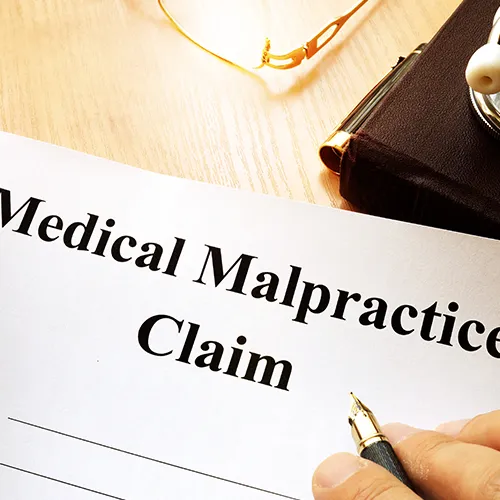
Medical Malpractice Claim Elements
Several elements must be proven to prove a medical malpractice claim. First a legal duty from the doctor to the patient must exist, meaning a doctor patient relationship existed and the doctor was responsible for the patient’s care.
Medical malpractice lawsuits involve important legal aspects, including the statute of limitations for filing claims and the responsibilities of medical professionals and organizations. These lawsuits highlight who can be held liable in cases of negligence within the healthcare system.
There must also be a breach of duty where the doctor doesn’t follow accepted professional standards of care. This breach can happen in many ways, diagnosis, medical mistakes or medication errors. Medical experts testify to what the standard of care should have been to prove this breach.
And finally causation and damages must be proven. Causation shows a direct link between the breach of duty and the patient’s injury, damages are the quantifiable losses caused by the doctor’s negligence. Without provable damages a medical malpractice claim can’t proceed.

Misdiagnosis
We handle cases where delayed or incorrect diagnosis caused harm.
Misdiagnosis can be devastating, often resulting in untreated conditions, unnecessary treatments, or even death. This neglect can occur in various medical settings, including emergency rooms, general practices, or specialized clinics.
Misdiagnosis can involve failure to recognize symptoms, incorrect interpretation of test results, or inadequate follow-up care. Victims of misdiagnosis endure prolonged pain, additional medical procedures, and emotional distress. Proving a misdiagnosis claim requires detailed medical records and expert testimony to show how the provider deviated from the standard of care and its direct impact on the patient’s health.
Investigating misdiagnosis cases involves examining the patient’s medical history and the actions of healthcare providers. If symptoms were obvious and a competent doctor would have diagnosed the condition correctly, it strengthens the claim. Misdiagnosis can cause irreparable damage, such as untreated cancer or undiagnosed heart conditions. The emotional toll on patients and families is significant, knowing their suffering could have been prevented with proper care. Legal representation aims to hold healthcare providers accountable and secure compensation for the physical and emotional harm suffered.

Birth Injuries
We represent families affected by preventable birth injuries like cerebral palsy and shoulder dystocia.
Birth injuries happen when complications during labor and delivery could have been avoided with proper medical care. These injuries can have a lifetime impact on the child and the family causing emotional and financial burdens. Common causes of birth injuries are failure to monitor fetal distress, misuse of delivery tools like forceps or vacuum extractors and delays in performing necessary C-sections. By holding negligent healthcare providers accountable we try to get the compensation needed for ongoing medical care, therapy and other support services for the child’s well being.
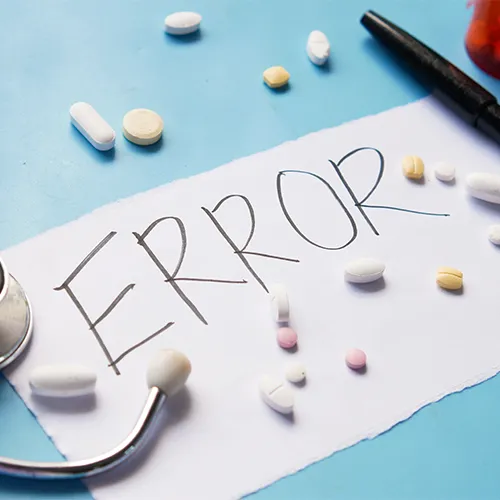
Medication Errors
Medication errors are a significant issue in healthcare, often causing severe harm to patients.
These errors can occur at various stages, from prescribing the wrong medication to administering the incorrect dose or failing to monitor for drug interactions. Modern pharmacology’s complexity means even a small mistake can lead to adverse drug reactions, diminished therapeutic outcomes, or death.
Sources of medication errors include miscommunication between healthcare providers, inadequate patient information, or systemic issues within the facility. For example, a doctor might prescribe a drug that interacts badly with another medication the patient is taking, or a nurse might administer the wrong dose due to a misread label.
Patients affected by medication errors often face prolonged recovery, additional treatments, and emotional distress. Filing a claim involves gathering medical records, expert testimony, and evidence of the provider’s deviation from the standard of care to secure compensation for medical expenses and other related costs.
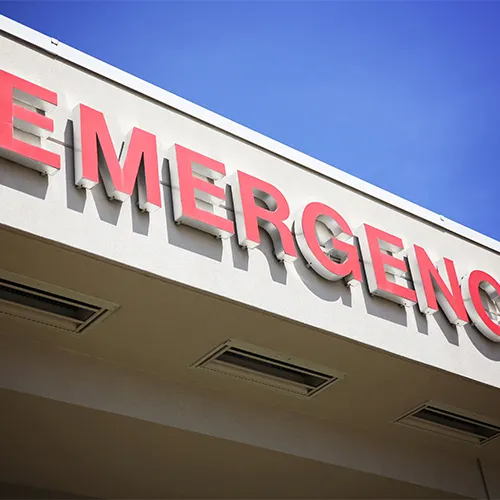
Emergency Room Errors
Emergency room errors are common because of the high pressure environment where decisions are made quickly.
Mistakes like misdiagnosis, delayed diagnosis and improper treatment can be severe.
For example a heart attack might be misdiagnosed as a less serious condition and life saving treatment delayed or a stroke patient might not get immediate treatment and suffer permanent damage or death. Administrative errors like incorrect patient information or lost records can further complicate care. Investigating these errors involves determining if the standard of care was breached often with medical expert testimony to get justice and compensation for the affected patients.
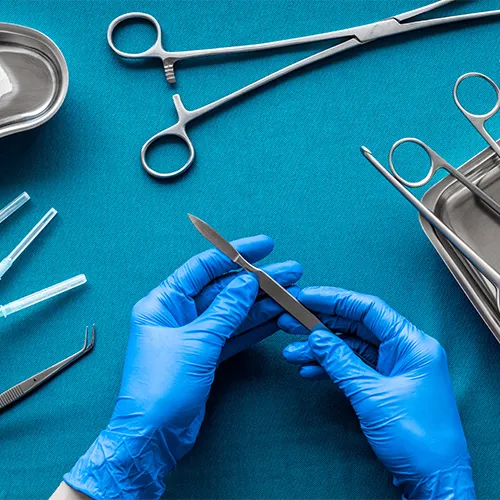
Surgical Errors
Surgical errors are a severe form of medical malpractice often causing long term harm or death.
Common mistakes are wrong site surgeries, anesthesia errors and leaving surgical instruments inside the patient. These errors happen when the standard of care is not met during the procedure.
Wrong site surgeries are operating on the wrong body part, anesthesia mistakes can cause brain damage or death. Retained surgical items cause infection and require corrective surgery. Victims of surgical mistakes can get compensation for medical expenses, pain, lost wages and ongoing care by holding the healthcare providers accountable for preventable mistakes.
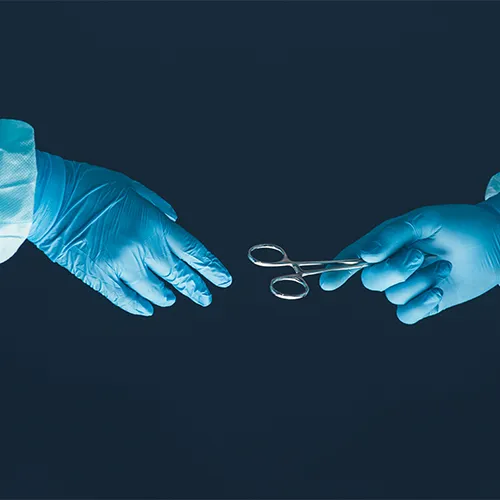
Wrong-site Surgeries
Wrong site surgeries are one of the most serious and preventable forms of medical malpractice.
These errors happen when a surgeon operates on the wrong body part, performs the wrong procedure or operates on the wrong patient altogether. These mistakes can be severe, unnecessary surgeries, permanent injuries or even death.
Common causes of wrong site surgeries are poor communication among the medical team, inadequate preoperative planning and failure to follow safety protocols like proper patient marking. These errors often come from systemic issues within the healthcare facility, rushed procedures or inadequate staff training.
Victims of wrong site surgeries have physical, emotional and financial burdens, get additional surgeries and extended recovery time. Proving malpractice in these cases involves showing the healthcare provider deviated from the standard of care. Legal claims can help victims get compensation for medical expenses, pain and suffering by holding the healthcare provider accountable.
Frequently Asked Questions
Who can be held liable in medical negligence cases?
In a medical malpractice case, multiple parties, including medical doctors and their assistants, can be held liable. Medical doctors bear significant responsibility and can also be vicariously liable for the actions of their employees, such as nurses and physician assistants. Surgeons can be responsible for surgical errors like leaving instruments inside the patient post operation.
Hospitals and healthcare facilities can be held accountable for negligence related to unsafe conditions or poor hiring practices. Pharmacists can be liable for errors in medication dispensing like incorrect dosages or medications.
Multiple parties can be jointly liable in a malpractice case. For example, a hospital and a negligent doctor can both be held responsible for the patient’s harm. Identifying all the defendants ensures the victim can get full compensation for their losses.
When to file a Medical Malpractice Claim?
If you or a loved one has been injured due to medical malpractice, it’s essential to file a claim as soon as possible. In North Carolina, the statute of limitations for medical malpractice claims is typically three years from the date of the injury or one year from the date of discovery, whichever is later. In the event of a wrongful death, the statute of limitations is 2 years.
However, there are exceptions to this rule, and the statute of limitations may be tolled in certain circumstances. It’s crucial to consult with a medical malpractice attorney to determine the best course of action and ensure that your claim is filed within the required timeframe.
In North Carolina, a medical expert must certify that medical negligence has occurred, prior to the filing of the Complaint. Thus, it is important that you do not delay in consulting an attorney.
How to prove medical malpractice?
To prove medical malpractice, you must establish that a healthcare provider breached the standard of care and that this breach caused your injury. This requires the testimony of a medical expert who can explain the standard of care and how the healthcare provider failed to meet it.
You must also prove that the breach of the standard of care caused your injury, which can be a complex and challenging task. A medical malpractice attorney can help you navigate this process and ensure that your rights are protected.
What is the statute of limitations for medical malpractice in North Carolina?
The statute of limitations for medical malpractice cases in North Carolina is generally 3 years from the date of injury. However there are exceptions and specific circumstances that can extend or shorten this timeframe. For minors the statute of limitations depends on various legal factors including the child’s age.
In wrongful death cases the statute of limitations is 2 years from the date of death. Additionally if a foreign object is left in the patient’s body the claim must be filed within 1 year from discovery of the injury but not more than 10 years after the object was left. These specific rules emphasize the need to consult a lawyer as soon as possible after an injury occurs.
Failing to act soon can bar the right to file a claim so it’s important to understand and comply with the statute of limitations. A lawyer can ensure the lawsuit is filed within the time frame and protect your right to compensation.
How can a medical malpractice lawyer help?
Local lawyers have connections to medical professionals and doctors who can give crucial testimony on standard of care. Hiring experts in the same medical field is necessary to testify on professional standards and prove the doctor failed to meet those standards. This expert testimony is often the key to proving the claim.
Lawyers also negotiate aggressively with healthcare providers and insurance companies to get fair settlements. If needed they can represent clients in court to get them a settlement they deserve. Their expertise ensures clients get full compensation for various damages including future care needs.
What can you recover in a medical malpractice case?
Victims of medical malpractice can recover various types of pay for their losses. Economic damages include medical bills, lost wages and future earnings directly resulting from the neglect. These damages cover the financial impact of the malpractice.
Non-economic damages cover general damages such as physical pain, emotional suffering and loss of life’s enjoyment due to medical neglect. These damages acknowledge the broader impact of the malpractice on the victim’s life. In wrongful death cases the claim can compensate the deceased patient’s family for their losses resulting from the malpractice.
What are damages in medical malpractice cases?
If you are successful in your medical malpractice claim, you may be entitled to various types of damages, including medical expenses, lost wages, pain and suffering, and emotional distress. In North Carolina, non-economic damages, such as pain and suffering or loss of enjoyment of life, are capped at just over $500,000 (reset every 3 years based on inflation N.C.G.S. 90-21.19). However, there is no cap on economic damages, such as medical expenses and lost wages. A medical malpractice attorney can help you determine the types and amounts of damages you may be entitled to and ensure that you receive fair wages for your injuries.
Contact Gloria Becker Law About Your Medical Malpractice Case
If you or a loved one has been injured due to medical malpractice, it’s essential to file a claim as soon as possible.
"*" indicates required fields
